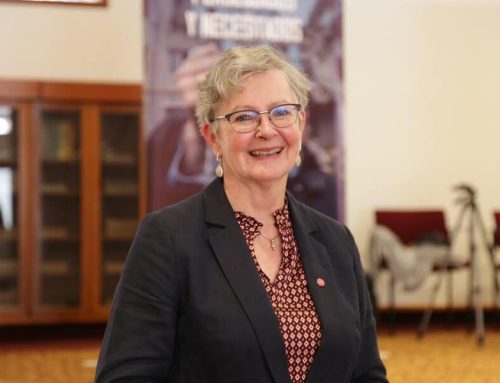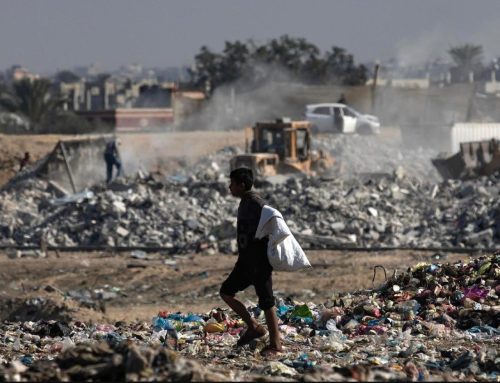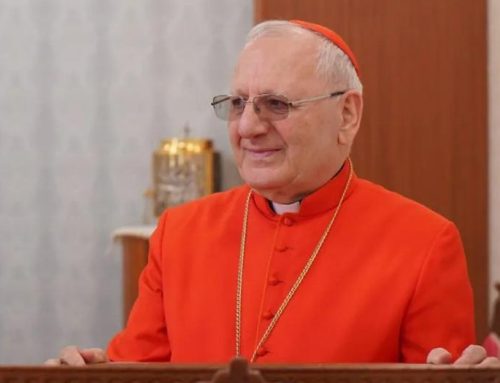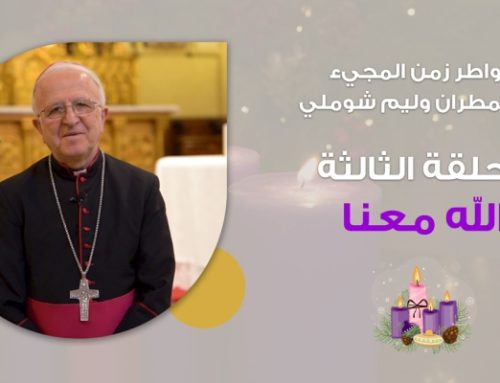
Excerpts from the Holy Father’s Message:
“Civil and political authorities before all others have a grave responsibility to work for peace… They are the first called to resolve the numerous conflicts causing bloodshed in our human family, beginning with that privileged region in God’s plan, the Middle East. I think first and foremost of Syria, torn apart by endless slaughter and the scene of dreadful suffering among its civilian population. I renew my appeal for a ceasefire and the inauguration as quickly as possible of a constructive dialogue aimed at putting an end to a conflict which will know no victors but only vanquished if it continues, leaving behind it nothing but a field of ruins…Allow me to ask you to continue to make your Governments aware of this, so that essential aid will urgently be made available to face this grave humanitarian situation.”
“I now turn with deep concern towards the Holy Land. Following Palestine’s recognition as a Non-Member Observer State of the United Nations, I again express the hope that, with the support of the international community, Israelis and Palestinians will commit themselves to peaceful coexistence within the framework of two sovereign states, where respect for justice and the legitimate aspirations of the two peoples will be preserved and guaranteed. Jerusalem, become what your name signifies! A city of peace and not of division; a prophecy of the Kingdom of God and not a byword for instability and opposition!”
“As I turn my thoughts towards the beloved Iraqi people, I express my hope that they will pursue the path of reconciliation in order to arrive at the stability for which they long.”
“In Lebanon, where last September I met the various groups which make up society, may the many religious traditions there be cultivated by all as a true treasure for the country and for the whole region, and may Christians offer an effective witness for the building of a future of peace, together with all men and women of good will!”
“In North Africa too, cooperation between all the members of society is of primary concern, and each must be guaranteed full citizenship, the liberty publicly to profess their religion and the ability to contribute to the common good. I assure all Egyptians of my closeness and my prayers at this time when new institutions are being set in place.”
“Continuing our meeting today, I would like to add that peace in society is also put at risk by certain threats to religious liberty: it is a question sometimes of the marginalization of religion in social life; sometimes of intolerance or even of violence towards individuals, symbols of religious identity and religious institutions. It even happens that believers, and Christians in particular, are prevented from contributing to the common good by their educational and charitable institutions. In order effectively to safeguard the exercise of religious liberty it is essential to respect the right of conscientious objection. This “frontier” of liberty touches upon principles of great importance of an ethical and religious character, rooted in the very dignity of the human person. They are, as it were, the “bearing walls” of any society that wishes to be truly free and democratic. Thus, outlawing individual and institutional conscientious objection in the name of liberty and pluralism paradoxically opens by contrast the door to intolerance and forced uniformity.”
“Moreover, in an ever more open world, building peace through dialogue is no longer a choice but a necessity! From this perspective, the joint declaration between the President of the Bishops’ Conference of Poland and the Patriarch of Moscow, signed last August, is a strong signal given by believers for the improvement of relations between the Russian and Polish peoples. I would also like to mention the peace accord concluded recently in the Philippines and I would like to underline the role of dialogue between religions for a peaceful coexistence in the region of Mindanao.”
“At the end of the Encyclical Letter Pacem in Terris, my predecessor Blessed John XXIII remarked that peace remains “an empty word” if it is not nourished and completed by charity (AAS 55 “To conclude our encounter, I would like to recall that, at the end of the Second Vatican Council, Pope Paul VI, sent out messages which remain relevant, including one addressed to world leaders. He encouraged them in this way: “Your task is to be in the world the promoters of order and peace among men. But never forget this: It is God who is the great artisan of order and peace on earth.”





